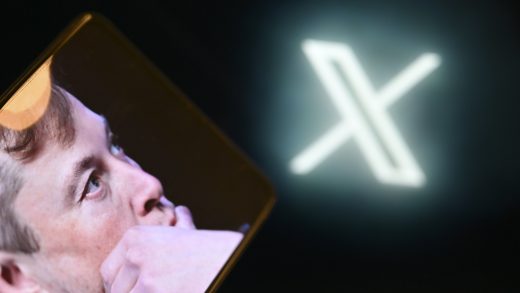As I write this, right up the road, students from my alma mater are leading the largest student-led occupation in the college’s history in protest of the school’s lack of support of low income students and students of color. A few weeks ago, on the other side of the world, thousands of teenagers gathered to protest government inaction regarding climate change. And years ago, in a town in the Midwest that the country had largely forgotten, young people started a movement to resist police brutality that changed the world.
Lilliam Rivera’s Dealing in Dreams, then, is set in an environment that doesn’t seem so unlike our own. In a near-future dystopia, a people are ruled by a megalomaniac with seemingly unchecked power, whose narcissism is fueled by a lifetime of wealth and access. There are gross disparities in housing, employment, education and opportunity that allow a privileged few to thrive, but only at the expense of the most vulnerable among them. And young people must take to the streets to protect their people in ways that the adults around them have failed to do.
Dealing In Dreams explores violence, privilege and the complicated nature of power, and what it means when the future of a community rests in the hands of history’s most fearless radicals: young people.
Leah Johnson: You’ve said that you wanted Dealing in Dreams, to be a book like the ones you loved when you were a kid (violent and fast-paced), but to have girls be at the center of it. In knowing that, where did the book come from and grow to?
Lilliam Rivera: I wrote the book six years ago. I wrote a draft of it and it was because I just given birth to my second daughter, and at the time I didn’t have an agent or even my first book—none of that. So I was still in that process of trying to get published, and trying to be a published author. And when I had my second daughter a lot of people were like: “Oh, you’re going to have to shelf that dream!” And a lot of that was coming from women. So out of rage I wrote this book.
It was the kind of book that I would have wanted to have read when I was in high school. I wanted something violent, I wanted something that [felt like] The Outsiders. And I wanted it from the perspective of a young Latina. So I wrote a draft six years ago and I put it away, I didn’t look at it. And then I looked at it again two years ago when I signed my two-book deal. And I saw that it was still pretty relevant—a lot of the anger I had in there was still pretty palpable. In the last year it’s been through a lot of changes, drafts, rewrites, but it still made a lot of sense. Very of this moment, even if it was set in the near future.
When I had my second daughter, people said: ‘Oh, you’re going to have to shelf that dream of becoming a published author!’ So out of rage I wrote this book.
LJ: The book is also doing a lot of work in terms of radical feminism, race, class—the whole nine yards. These aren’t topics that a lot of people normally associate with YA—which I think is a gross, gross undersell of the genre. When you were writing, how did you think about tackling these issues, while also making them accessible to a young audience?
LR: For me, when I’m writing a young adult book, I’m always thinking about the bigger thing. For my first book, The Education of Margot Sanchez, I was obviously thinking about gentrification but also colorism within the Latino community. So then with this book, again, I felt that things were even bigger, or even more complicated.
I was really thinking about government-run medical experiments that have been done in Puerto Rico. I was reading about how they use medical trials in Puerto Rico on women when they were trying out their drugs. There were little lines that would be put in these newspaper articles that were dropped in there and no one is saying: “This is insane!” Like, it’s still happening.
And I thought about during that time it was the Women’s March going on, and it was all about the patriarchy, and down with the system, and men, and all this stuff. And I’m all about that too, but there aren’t any easy answers to any of this. I feel like for most of the time the women of color who are leading on the front lines are usually cast away at one point during that revolution. So all of those questions were circulating when I was revising the book.
LJ: I found it so radical that the defense of Mega City is in the hands of these badass young women. I don’t know that I even have a question except to say that that particular choice feels so powerful and so timely right now.
LR: I feel like we saw that, right? When I think of Black Lives Matter, I think of all those young people who were on the front lines. Even in Florida, after the shooting, all of the kids became the spokespeople for that. But before that, it was Black Lives Matter. It was the young leading that. I think people forget that it’s true that they have way more power.
I’m reading about the walkouts in LA in the ‘70s and ‘60s—all of the Chicanos who led those walkouts—and they were all high school students. It’s really powerful. It should be, it makes sense, for young people to be owning the city, owning the streets. Even if it is a little bit misguided at first, for Nalah and Las Mal Criadas they do have that power.
LJ: That sort of goes back to the last question as well, that it’s not super foreign that we’re going to make these topics “appropriate” or palatable to young people—because these are topics that young people are taking on in the streets everyday. So it feels fitting.
LR: Yeah, there’s definitely like this thing in young adult where people think: “Oh, we can only handle one issue in a book!” And I’m like, that’s not even realistic for anyone who’s living. Young people are dealing with multiple things on a daily basis. While also finding joy and also falling in love and all of those things. But also just dealing with major stuff. And so I was just trying to formulate that in a futuristic world where these girls really do have power, really do have unbridled violence, in a way where they don’t see much that’s like the “[traditional] girl.”
Most of the time the women of color who are leading on the front lines are usually cast away at one point during that revolution.
LJ: And this violence is not just tolerated by the matriarchy, but kind of similar to The Hunger Games, it’s encouraged by this power structure.
LR: I grew up loving to watch live boxing, and I follow a lot of the Puerto Rican fighters. So, to me, it’s tied to that type of performance. I can see the beauty of boxing, and the talent and skill, but I can also see how it’s so tied to poverty and also to uplifting someone and all of those things. And it’s disturbing. And all of that is tied into how I wanted to write about violence.
LJ: This whole book is upending stereotypes. One of my favorite choices of yours was to make men props in the way that women often are. Were the papi chulos sort of a middle finger to all of the male writers who’ve constructed nameless, faceless, attractive women over the years? I might be projecting.
LR: That’s amazing! I didn’t think about that, but maybe subconsciously? Honestly, the idea of boydegas and papi chulos came to me from this documentary I watched a long time ago and it was based in Japan and it was about these young, professional women who are able to rent out men. You go to a club and you can rent them out, and it was very specifically geared to young women. So I was totally fascinated by that, and I always thought about how I grew up a Menudo fan. And Menudo was like the boy band that always had new, fresh boys so that [the members] would stay forever young. So I thought about what that would look like in the future, when guys are put in that type of subservient role, and just become eye candy for the gangs. So yeah, I had a lot of fun writing those scenes.
LJ: I want to say how important this book feels to me. Even the way language functions here was something special. There is a lot of Spanish, but the book never slows down to explain it to non-Spanish speakers, it just expects us to keep up.
LR: It felt really important. For my first book, I described words and meanings more, and for this one I was just like no. I feel like I’m just going to do that from now on. This is the world, and you should either know the words and the lingo or you don’t. It felt really liberating to be able to do that. You’re entering this world, some of it’s familiar and some of it’s not, and that’s okay.
The post Lilliam Rivera Writes Young Adults As the Face of Resistance appeared first on Electric Literature.
Source : Lilliam Rivera Writes Young Adults As the Face of Resistance














